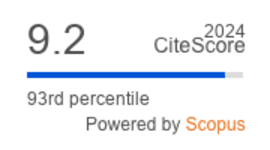Survival Analysis of Diabetic Colorectal Cancer Patients on Metformin
DOI:
https://doi.org/10.36877/pmmb.a0000390Abstract
Metformin, an antihyperglycemic drug, has been associated with antineoplastic effects and could potentially improve colorectal cancer prognosis. The association between metformin and colorectal cancer prognosis has shown conflicting results. This study aims to define the association between metformin and colorectal cancer prognosis in colorectal cancer patients in the Brunei population. The study was a retrospective cohort study that included colorectal cancer patients from The Brunei Cancer Center (TBCC) treated between July 2014 and July 2019. Kaplan-Meier and multivariate Cox proportional hazard regression models were used to analyze the data, construct survival curves, and adjust for comorbidities. Of a total of 112 diabetic patients, 79 patients (70.5%) were on metformin, and 33 patients (29.5%) were on other antihyperglycemic medications. An association between metformin use and lower incidence of stage IV colorectal cancer (p = 0.046) was observed, but no significant difference between the metformin group and the non-metformin group in terms of survival probability (log rank p = 0.13) was shown. Analysis using multivariate models showed that metformin reduces the hazard ratio by 31.2%, although this value is statistically insignificant (HR, 0.688; 95% CI 0.286 – 1.654; p = 0.403). Among the diabetic colorectal cancer patients, there was no association between survival and metformin therapy. However, the association between cancer progression and metformin use requires further investigation, and high-powered clinical trials are needed to support these findings.
Downloads
Published
How to Cite
Issue
Section
License
Copyright (c) 2023 Alex Brandon Wong, Ravi Patnaik, Li Ling Chaw, Shir Kiong Lu, Long Chiau Ming, Wen Han Chooi, Ya Chee Lim

This work is licensed under a Creative Commons Attribution-NonCommercial 4.0 International License.
Author(s) shall retain the copyright of their work and grant the Journal/Publisher right for the first publication with the work simultaneously licensed under:
Creative Commons Attribution-NonCommercial 4.0 International (CC BY-NC 4.0). This license allows for the copying, distribution and transmission of the work, provided the correct attribution of the original creator is stated. Adaptation and remixing are also permitted.

This broad license intends to facilitate free access to, as well as the unrestricted reuse of, original works of all types for non-commercial purposes.
The author(s) permits HH Publisher to publish this article that has not been submitted elsewhere.



.png)

.jpg)
